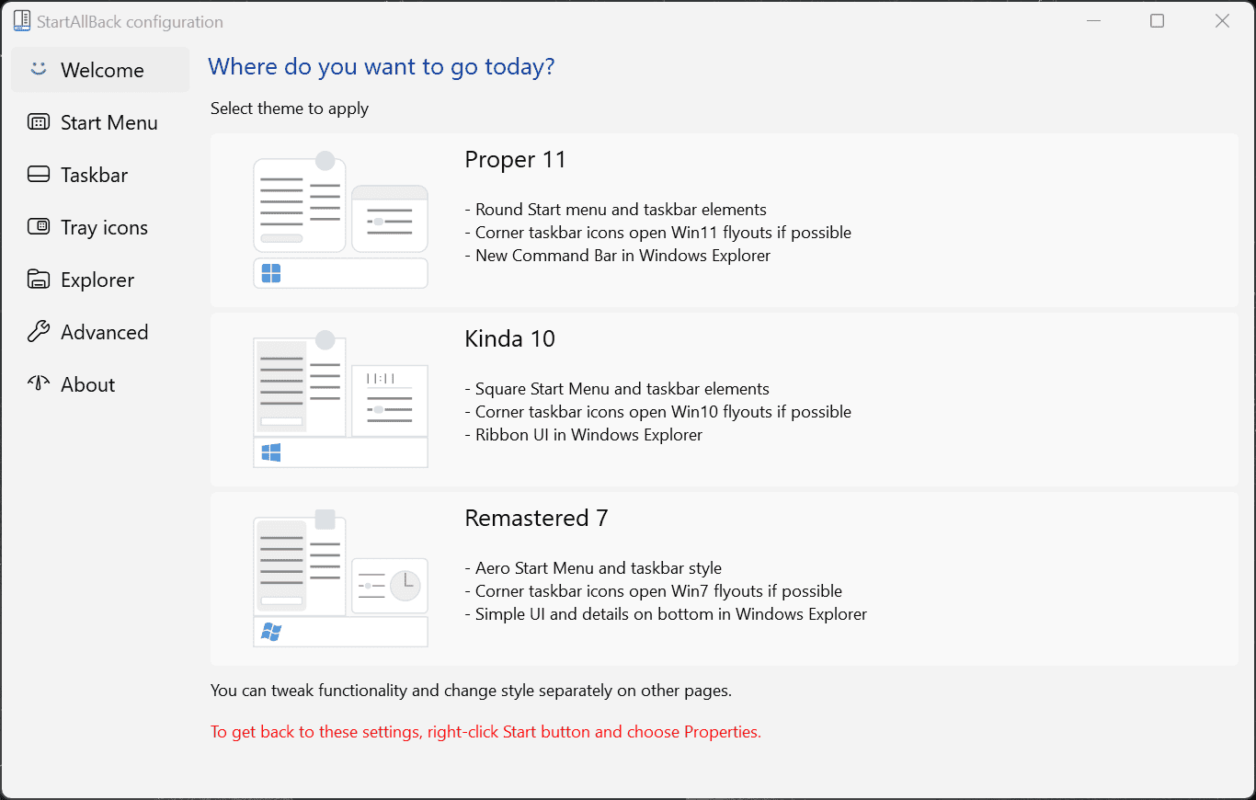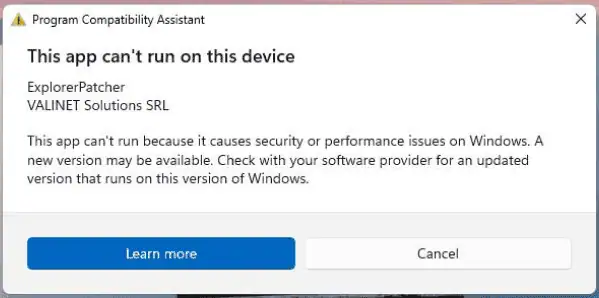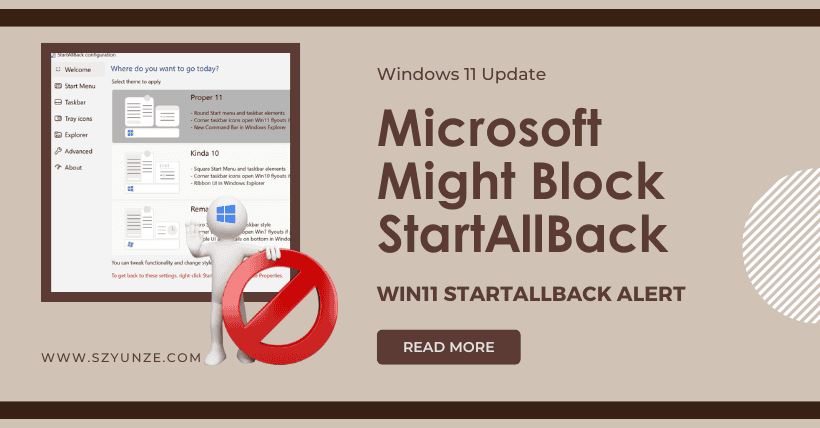Time flies, and the Windows 11 operating system has already been released for three years. Despite this, many people still have a resistant and rejecting attitude toward Windows 11.
They find Windows 11 particularly difficult to use, especially due to significant UI changes (such as the taskbar), and are not accustomed to the operation, which is one of the main reasons. Moreover, Microsoft’s approach is very aggressive, not offering interface modification settings, and preventing users from switching to the classic Windows 10 style, which is quite frustrating.
There is a way to solve this problem, which is to install third-party interface style modification programs, such as the classic StartAllBack and ExplorerPatcher.

Among them, StartAllBack is more well-known, and many people, including the author, are using it, as shown in Figures 2 and 3. Users just need to make simple settings to switch Windows 11 to the classic, familiar Windows 10 style, which is very convenient.
However, StartAllBack is not without its drawbacks and points of criticism. Occasionally, after installing a certain Windows 11 system update, a prompt may pop up, warning that some setting options are incompatible. This situation is relatively rare, and generally, updating and installing the latest version of StartAllBack can solve it, and the overall experience is still okay.

Below, the author has some bad news about StartAllBack to share:
Microsoft might take an even more aggressive approach in future versions of Windows 11 (such as Windows 11 24H2) to kill off third-party interface style modification programs, including StartAllBack and ExplorerPatcher.
Many might wonder why Microsoft would do this. The answer is simple: for stability and security reasons.
Recently, in the Windows 11 developer channel, if a user tries to install third-party interface style modification programs like StartAllBack and ExplorerPatcher, the system will pop up a warning (see the image below): “This application cannot run (in Windows 11) as it may cause certain security and performance issues.”
Despite this, Microsoft’s preventative measures are only symbolic; users have many ways to easily bypass and continue installing StartAllBack without any negative impact, and everything works normally.

However, for the upcoming major new version, Windows 11 24H2, the situation could be more severe and unpredictable. The fate of third-party interface style modification programs like StartAllBack and ExplorerPatcher is uncertain.
In Windows 11 24H2, Microsoft might adopt an even more aggressive strategy, implementing more measures to suppress and disable third-party interface style modification programs. Of course, Microsoft might also abandon the restrictions, limiting them only to certain development versions of Windows 11.
To be fair, the latter possibility is less likely, and the former is much more probable, so everyone should be prepared mentally. However, in the current mainstream version of Windows 11 23H2, users can install StartAllBack and ExplorerPatch without any warnings, so there is no need to worry for now.
In summary, this is not good news for those currently using the Windows 11 system. Of course, in the future Windows 11 24H2, the likelihood that users will be completely unable to install and use StartAllBack and ExplorerPatch is very small, and, likely, some workaround methods will still be found. However, this will undoubtedly be much more troublesome and quite frustrating.
The author will share more related explosive news dynamics as soon as possible, so stay tuned.
Related:

Disclaimer: This article is created by the original author. The content of the article represents their personal opinions. Our reposting is for sharing and discussion purposes only and does not imply our endorsement or agreement. If you have any objections, please contact us through the provided channels.



